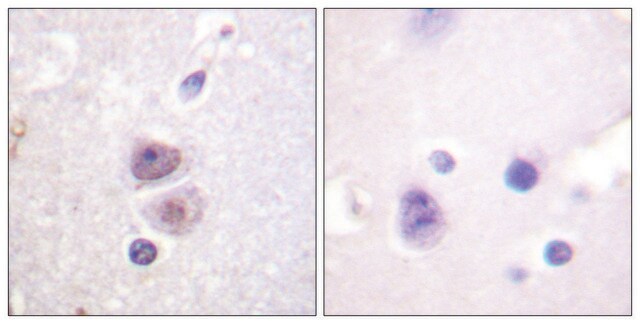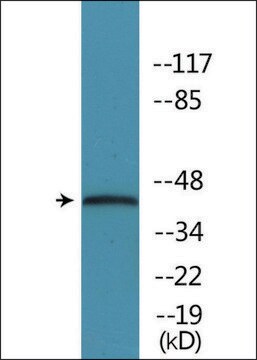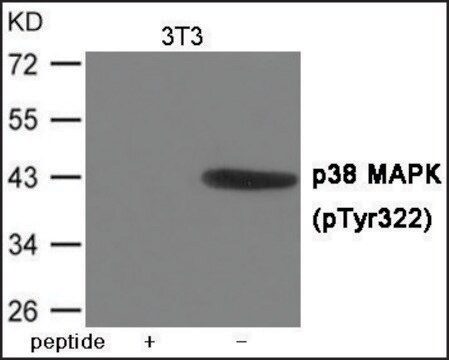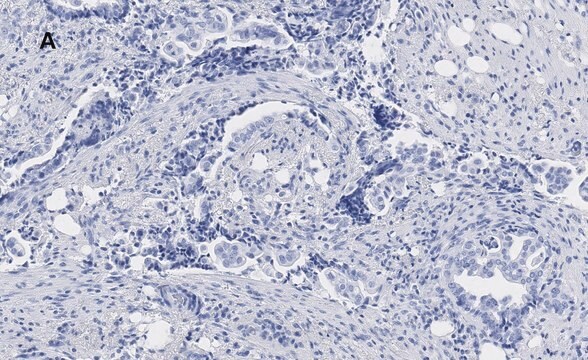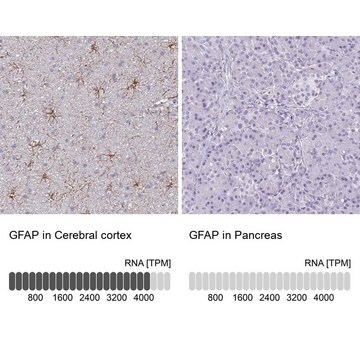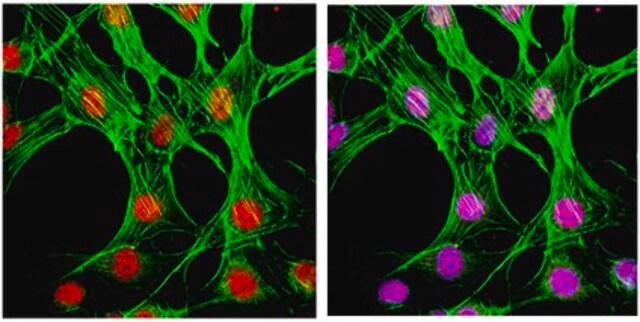ZRB2006
Anti-phospho-p38 (T180/Y182) Antibody, clone 2B7 ZooMAb® Rabbit Monoclonal

recombinant, expressed in HEK 293 cells
Synonym(s):
EC:2.7.11.24, MAP kinase 13, MAP kinase p38 delta, MAPK 13, Mitogen-activated protein kinase 13, Mitogen-activated protein kinase p38 delta, Stress-activated protein kinase 4
About This Item
Recommended Products
biological source
rabbit
Quality Level
recombinant
expressed in HEK 293 cells
conjugate
unconjugated
antibody form
purified antibody
antibody product type
primary antibodies
clone
2B7, recombinant monoclonal
description
recombinant, expressed in HEK 293 cells
product line
ZooMAb® learn more
form
lyophilized
purified by
using Protein A
species reactivity
human
packaging
antibody small pack of 25 μL
greener alternative product characteristics
Waste Prevention
Designing Safer Chemicals
Design for Energy Efficiency
Learn more about the Principles of Green Chemistry.
enhanced validation
recombinant expression
Learn more about Antibody Enhanced Validation
sustainability
Greener Alternative Product
technique(s)
flow cytometry: suitable
immunohistochemistry: suitable
inhibition assay: suitable
western blot: suitable
isotype
IgG
epitope sequence
Internal
Protein ID accession no.
UniProt accession no.
greener alternative category
shipped in
ambient
storage temp.
2-8°C
General description
Specificity
Immunogen
Application
Evaluated by Western Blotting in lysate from HEK293 cells treated with Anisomycin.
Western Blotting Analysis: A 1:1,000 dilution of this antibody detected phospho-p38 MAPK (Thr180/Tyr182) in lysate from overnight serum starved HEK293 cells treated with Anisomycin (5 g/mL; 30 min.)
Tested Applications
Peptide Inhibition Assay:: Target band detection in lysate from HEK293 cells treated with Anisomycin was prevented by pre-blocking of a representative lot with the immunogen phosphopeptide, but not the corresponding non-phosphopeptide.
Flow Cytometry Analysis: 0.1 µg from a representative lot detected phospho-p38 MAPK (Thr180/Tyr182) in one million HEK293 cells treated with Anisomycin.
Immunohistochemistry (Paraffin) Analysis: A 1:100 dilution from a representative lot detected phospho-p38 MAPK (Thr180/Tyr182) in Human colon cancer tissue sections.
Note: Actual optimal working dilutions must be determined by end user as specimens, and experimental conditions may vary with the end user.
Target description
Physical form
Reconstitution
Storage and Stability
Other Notes
Legal Information
Disclaimer
Not finding the right product?
Try our Product Selector Tool.
Storage Class Code
11 - Combustible Solids
WGK
WGK 1
Flash Point(F)
Not applicable
Flash Point(C)
Not applicable
Choose from one of the most recent versions:
Certificates of Analysis (COA)
Sorry, we don't have COAs for this product available online at this time.
If you need assistance, please contact Customer Support.
Already Own This Product?
Find documentation for the products that you have recently purchased in the Document Library.
Our team of scientists has experience in all areas of research including Life Science, Material Science, Chemical Synthesis, Chromatography, Analytical and many others.
Contact Technical Service